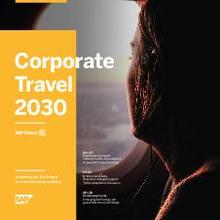Is Corporate Travel Ready for Artificial Intelligence?
Artificial intelligence (AI) is becoming more prevalent in our daily lives, often without our noticing. For example, web-mapping apps have evolved to do more than simply give us directions. They now collect and analyze data on current traffic, road types, and other variables to predict the fastest route to our destinations for a selected time and day.
These types of innovations are coming to business travel. Already we’ve seen booking tools that use traveler preferences to find travel options that work best for a traveler and are in-policy. Soon, we may see tools that can automatically search for and suggest booking options when a potential trip is simply mentioned in email. Or intelligent services that consider cost increases, real-time weather conditions, or co-worker’s shifting schedules to re-shape an itinerary if needed and automatically book travel.
These types of tools would make business travel smoother, but there are a few obstacles to jump over before they can become fixtures in our travel processes.
First, in order to gather the data sets needed on which to base predictions, travelers must be willing to offer up personal information such as travel preferences, loyalty programs, passports, and credit card information. Fortunately, according to IATA’s 2017 Global Passenger Survey, 85% of passengers are willing to provide more personal data in exchange for a more customized travel experience.
Next, predicting disruptions that can influence travel and rerouting travelers requires visibility into so many different areas that no one organization could handle it alone. A diverse collection of entities including travel suppliers, weather forecasters, technology providers, and professional service firms must partner to connect over a common platform. The SAP Concur App Center is a continually-growing ecosystem that many of these organizations already connect over in order to make business travel smoother.
As more organizations do so, questions will arise over who owns the business travel data that flows through the network. These questions could be answered by encryption and emerging technologies like blockchain, which lets us store data in a transparent and immutable way and lets the traveler retain ownership of their personal information.
Read the report, Corporate Travel 2030, and learn more about how AI and other exciting innovations will help you lead your travel and expense programs into a new, intelligent age.

